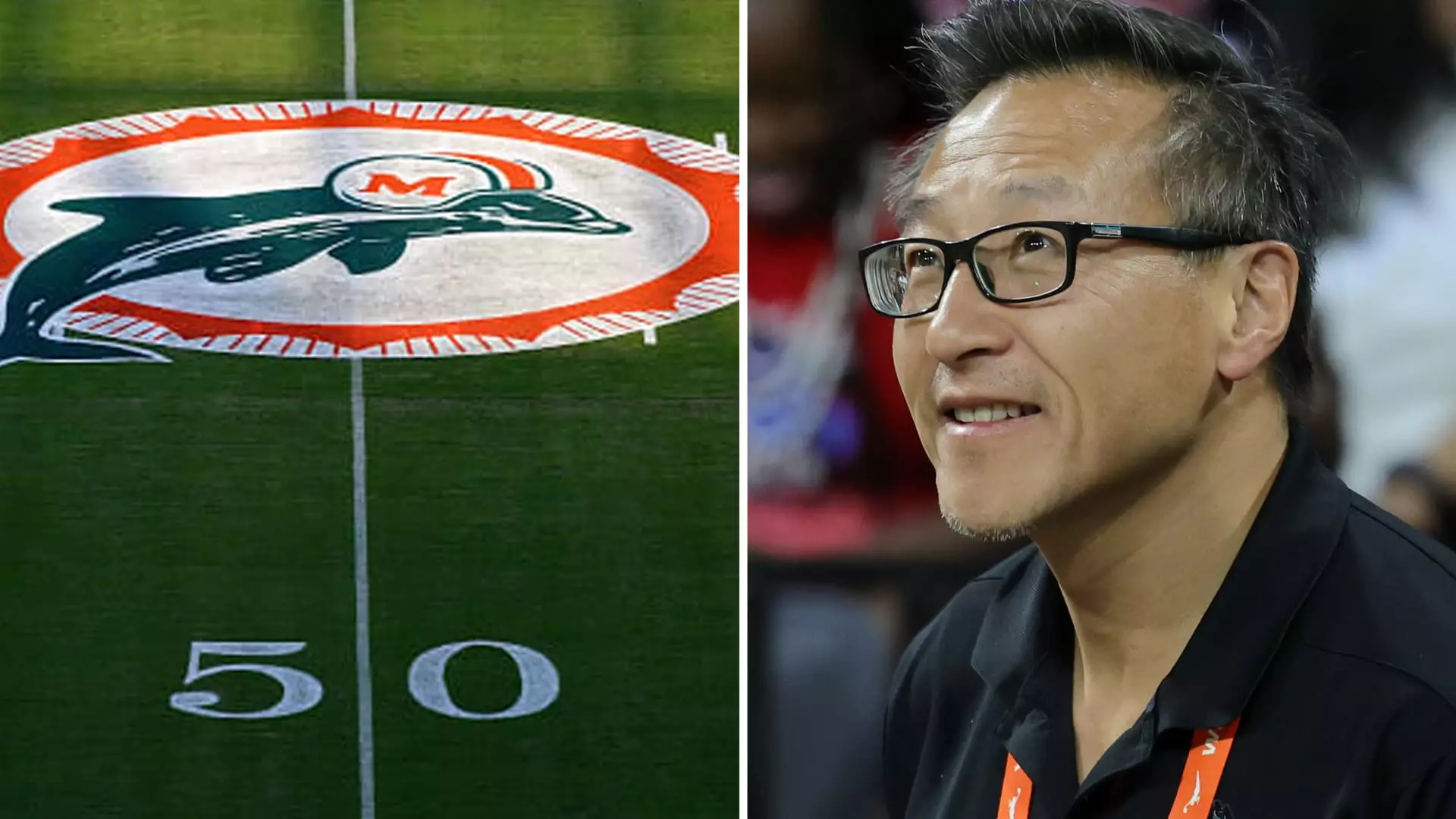The landscape of professional sports in the United States is undergoing a notable transformation, with NFL teams increasingly seeking private equity investments as a means of enhancing their financial robustness. The Miami Dolphins have emerged at the forefront of this trend, engaging in advanced discussions to sell a minority stake to Ares Management, a prominent private equity firm, along with billionaire and sports magnate Joe Tsai. This impending deal not only highlights the increasing convergence of private finance and sports but also illustrates how team ownership is evolving to meet the demands of modern revenue generation.
Valuation Insights of the Miami Dolphins
Recent valuations place the Miami Dolphins’ assets—including Hard Rock Stadium, the Miami Grand Prix F1 race rights, and a significant portion of the Miami Open—at an impressive $8.1 billion. This reflects the growing recognition of the value embedded in both sporting franchises and their associated venues. It’s striking to note that a controlling interest in these assets could demand valuations exceeding $10 billion, underlining a fierce competition and escalating financial stakes among potential investors. As of now, the Dolphins rank as the eighth most valuable team in the NFL, with a valuation of $7.1 billion, excluding the stadium. This poses intriguing questions about the future of franchise ownership and the viability of investment in such high-stakes environments.
A significant factor in this evolving dynamic is the NFL’s recent approval of new finance rules, which pave the way for private equity firms to acquire stakes in teams—an unprecedented move. Until August 2023, the NFL had maintained a cautious stance towards private investment, but as valuations swell, the allure of such financial backing appears increasingly irresistible. The Dolphins’ deal would represent the franchise’s first foray into private equity participation, potentially setting a precedent for other teams looking to enhance their operating capabilities while sharing the investment burden with capable partners.
Stephen Ross, the current owner of the Dolphins, illustrates the astute business strategy underpinning this potential investment. Having purchased the team in 2009 for $1.1 billion, Ross has displayed a keen sense for maximizing revenue streams. His dual role as owner of the Dolphins and operator of Hard Rock Stadium allows him to capitalize on various revenue-generating events, from sporting tournaments to concerts and automotive races. With the Dolphins generating $673 million in revenue in 2023 alone, Ross’s approach demonstrates how cross-functional management of assets can lead to significant financial success.
Yet, despite receiving a record $10 billion offer for full control of both the team and the stadium, Ross has shown a preference for keeping the franchise within his family. This decision may indicate a desire to maintain legacy rather than simply chase immediate financial gain, a sentiment that resonates with many team owners who prioritize long-term stewardship of their franchises.
Meanwhile, Joe Tsai’s aspirations in the sports industry further spotlight the strategic implications of this potential investment around the Dolphins. Tsai, currently overseeing a diverse portfolio including the Brooklyn Nets, New York Liberty, and various lacrosse teams, is consolidating his influence throughout the sports landscape. His involvement could lead to synergistic benefits across his ventures, drawing on his expertise in managing multiple franchises while expanding the Dolphins’ market reach.
The partnership with Ares Management, a firm managing $450 billion in assets, highlights the increasing synergy between private investment and sports ownership. This collaboration could reshape not only how teams manage their assets but also how sports fans will engage with their favorite franchises moving forward.
As the NFL welcomes private equity investment, the Miami Dolphins are at the forefront of a movement that may redefine the ownership and financial structures of professional sports. With the convergence of private finance and team operations, stakeholders must navigate a future full of promising opportunities and inherent challenges. The Dolphins case serves as a compelling blueprint for other teams eyeing potential growth avenues in an increasingly competitive and commercial landscape. Ultimately, this evolving dynamic reflects more than just financial transactions; it signifies a reshaping of the very fabric of sports ownership in America.

